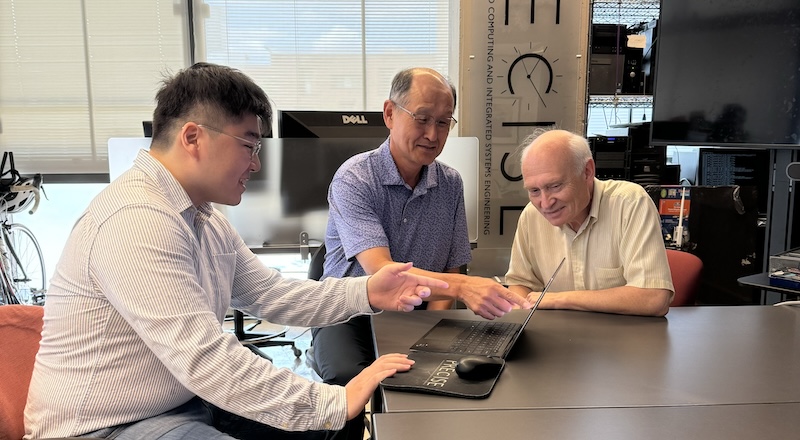
What if the technology that powers our cars, medical devices and energy grids could guarantee safety and reliability like never before? Pengyuan “Eric” Lu, a Ph.D. candidate at the Penn Research in Embedded Computing and Integrated Systems Engineering (PRECISE) Center, has been making this vision a reality through his research in deep learning for safety-critical systems.
Cyber-physical systems (CPS), in which “smart” technology interacts with the physical world, are vital to our daily lives: they power automobiles, medical devices, building heating-and-cooling systems, and smart-grid electricity networks. Lu’s research focuses on enhancing the reliability and safety of such systems.
Through his work, Lu, who is advised by PRECISE Center Director Insup Lee, Cecilia Fitler Moore Professor in the Department of Computer and Information Science (CIS), and Oleg Sokolsky, Research Professor in CIS, aims to address a significant challenge in modern control policies of CPS: ensuring that these systems are safe and react appropriately in real time to the physical world. Lu, who joined the University of Pennsylvania in 2019, leverages neural network repair techniques to enforce these properties, bringing a new level of safety assurance to deep learning-enabled CPS components.
Research Highlights
One of Lu’s key research projects involves repairing deficiencies in neural network-enabled controllers while maintaining the correct behaviors they are performing. “Traditional neural network repair techniques often overlook the need to maintain existing correct functionalities,” Lu says. “I formalize this ‘repair with preservation’ problem and propose an innovative algorithm that prevents the loss of correct knowledge during the repair process. This advancement could lead to more reliable and safer applications of deep models in critical systems.”
Eric’s work exemplifies the pioneering spirit of the PRECISE Center, demonstrating that with rigorous research and innovative techniques, deep learning models can be harnessed for a safer and more efficient future.
Insup Lee, Cecilia Fitler Moore Professor in Computer and Information Science
Another significant contribution from Lu’s research is in the domain of continual learning. Continual learning aims to incrementally build upon a model with new data while retaining previously acquired knowledge. Lu’s approach, using imprecise probability theory, allows for the creation of a convex set of models that can quickly generate user-preferred models without retraining. This method not only enhances efficiency, but also ensures the synthesized models achieve balance in their objectives, and cannot improve one aspect of their output without hurting another.
“I believe my research could have significant implications for the future use of deep models in safety-critical applications,” Lu says. “This work highlights the practicality of adapting deep models to meet formal safety and control objectives across extensive input spaces, advancing the industry’s progress toward integrating these models into critical systems such as autonomous vehicles and medical devices.”
Dispelling Misconceptions
Lu’s research also addresses evolving perceptions in the field. That is, while the embedded systems community has traditionally been cautious about using deep models in safety-critical applications due to perceived risks, advancements in autonomous driving and other cutting-edge technologies have demonstrated that these models can meet stringent safety requirements. Lu’s work builds on this progress, further enhancing the reliability and safety of deep models in critical systems. Additionally, his method, based on cutting-edge probability theory, demonstrates that efficient, versatile multi-tasking models can be achieved without extensive computational resources.
Looking Ahead
As Lu prepares to complete his Ph.D. this August and join ByteDance, Inc., the parent company of TikTok, as a machine learning scientist, his contributions to the field of deep learning and CPS are starting to have an impact. “His innovative approaches pave the way for broader and safer applications of deep models in vital, safety-critical functions,” Sokolsky says.
“Eric’s work exemplifies the pioneering spirit of the PRECISE Center,” adds Lee, “demonstrating that with rigorous research and innovative techniques, deep learning models can be harnessed for a safer and more efficient future.”
